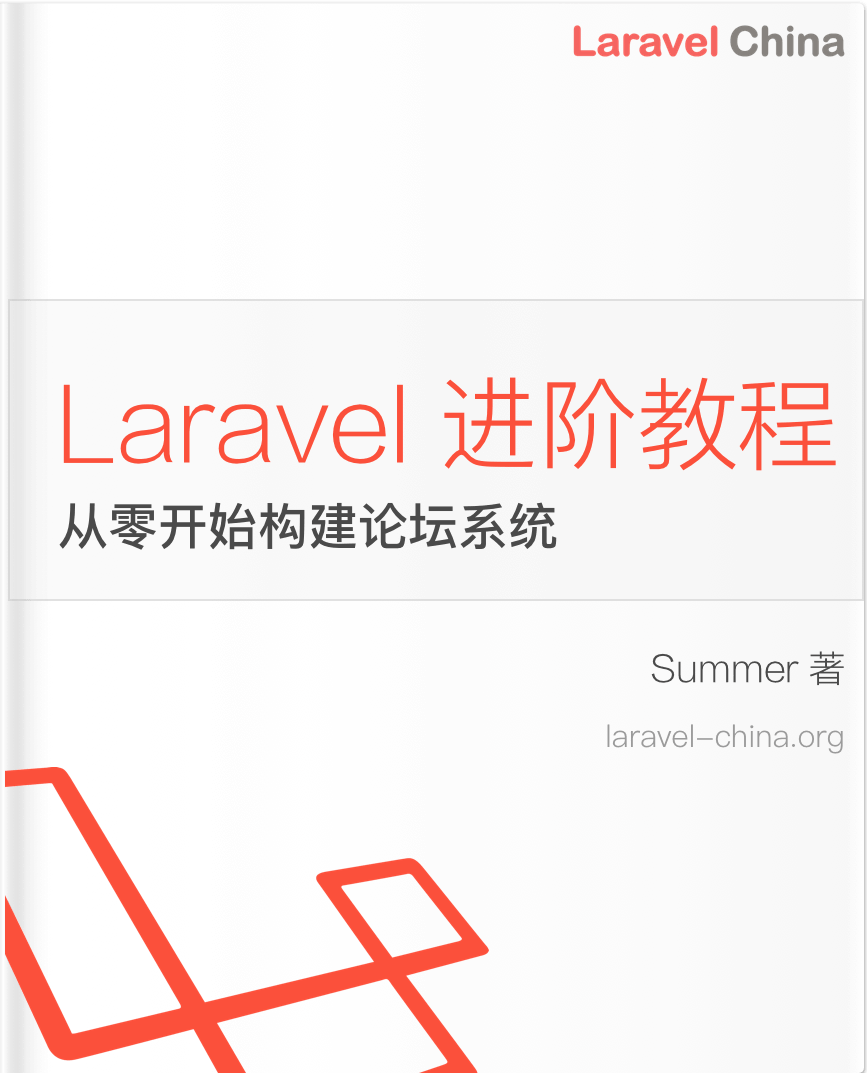CompileNN
/**
* Implements a class that compiles neural networks to optimized X86 machine
* code and applies them on input data.
*
* @author Felix Thielke
*/
#include "CompiledNN.h"
#include "Model.h"
#include "CompiledNN/CompiledNNImpl.h"
#include "Tools/Global.h"
namespace NeuralNetwork
{
using namespace asmjit;
using namespace CompiledNNImpl;
CompiledNN::~CompiledNN()
{
if(applyFunction)
Global::getAsmjitRuntime().release(applyFunction);
}
void CompiledNN::compile(const std::string& filename, const CompilationSettings& settings)
{
compile(Model(filename), settings);
}
void CompiledNN::compile(const Model& specification, const CompilationSettings& settings)
{
// Reset attributes
//重置属性
if(applyFunction)
{
Global::getAsmjitRuntime().release(applyFunction);
applyFunction = nullptr;
}
// Set network input/output dimensions
//设置网络输入输出尺寸/维度
inputDimensions = specification.getLayers().front()->inputDimensions;
outputDimensions = specification.getLayers().back()->outputDimensions;
size_t bufferSize = static_cast<size_t>(inputDimensions[0] * inputDimensions[1] * inputDimensions[2]) + 3;
// Constrict settings to CPU features
//对CPU特性的收缩设置???
const CompilationSettings effSettings = settings.constricted();
// Initialize layer compilers
//初始化层级编译器???
std::vector<std::unique_ptr<LayerCompiler>> compilers;
for(auto it = specification.getLayers().cbegin(); it != specification.getLayers().cend(); it++)//使用迭代器进行遍历(会不会很慢?)
{
const Layer& layer = **it;
if(layer.type == LayerType::batchNormalization)
{
if(effSettings.uint8Input && it == specification.getLayers().cbegin())
compilers.push_back(std::make_unique<UInt8InputCompiler>(effSettings, static_cast<const BatchNormalizationLayer*>(&layer)));
else
compilers.push_back(std::make_unique<BatchNormalizationLayerCompiler>(effSettings, static_cast<const BatchNormalizationLayer&>(layer)));
}
else
{
if(effSettings.uint8Input && it == specification.getLayers().cbegin())
{
compilers.push_back(std::make_unique<UInt8InputCompiler>(effSettings, nullptr, layer.inputDimensions));//make_unique是c++14,注意编译问题
compilers.back()->initialize();
}
switch(layer.type)
{
case LayerType::dense:
compilers.push_back(std::make_unique<DenseLayerCompiler>(effSettings, static_cast<const DenseLayer&>(layer)));
if(it + 1 != specification.getLayers().cend() && (*(it + 1))->type == LayerType::batchNormalization)
{
it++;
static_cast<DenseLayerCompiler&>(*compilers.back()).batchNormalization = static_cast<const BatchNormalizationLayer*>(it->get());
}
if(it + 1 != specification.getLayers().cend() && (*(it + 1))->type == LayerType::activation)
{
it++;
static_cast<DenseLayerCompiler&>(*compilers.back()).postActivation = static_cast<const ActivationLayer&>(**it).activationId;
}
/*
// TODO
if (it + 1 != specification.getLayers().cend() && (*(it + 1))->type == LayerType::elu)
{
it++;
static_cast<DenseLayerCompiler&>(*compilers.back()).elu = static_cast<const EluLayer*>(it->get());
}
*/
break;
case LayerType::conv2D:
compilers.push_back(std::make_unique<Conv2DLayerCompiler>(effSettings, static_cast<const Conv2DLayer&>(layer)));
bufferSize = std::max(bufferSize, static_cast<Conv2DLayerCompiler&>(*compilers.back()).bufferSizeNeeded());
if(static_cast<const Conv2DLayer&>(layer).activationId == ActivationFunctionId::linear)
{
// TODO this breaks for some reason, if it's not meant to be compiled together
if(it + 1 != specification.getLayers().cend() && (*(it + 1))->type == LayerType::batchNormalization)
{
it++;
static_cast<Conv2DLayerCompiler&>(*compilers.back()).batchNormalization = static_cast<const BatchNormalizationLayer*>(it->get());
}
if(it + 1 != specification.getLayers().cend() && (*(it + 1))->type == LayerType::activation)
{
it++;
static_cast<Conv2DLayerCompiler&>(*compilers.back()).postActivation = static_cast<const ActivationLayer&>(**it).activationId;
}
/*
// TODO
if (it + 1 != specification.getLayers().cend() && (*(it + 1))->type == LayerType::elu)
{
it++;
static_cast<Conv2DLayerCompiler&>(*compilers.back()).elu = static_cast<const EluLayer*>(it->get());
}
*/
}
break;
case LayerType::sconv2D:
compilers.push_back(std::make_unique<SConv2DLayerCompiler>(effSettings, static_cast<const SConv2DLayer&>(layer)));
bufferSize = std::max(bufferSize, static_cast<SConv2DLayerCompiler&>(*compilers.back()).bufferSizeNeeded());
break;
case LayerType::reshape:
// Do nothing
continue;
case LayerType::elu:
// TODO
ASSERT(false);
break;
case LayerType::activation:
compilers.push_back(std::make_unique<ActivationLayerCompiler>(effSettings, static_cast<const ActivationLayer&>(layer)));
break;
case LayerType::pooling2D:
compilers.push_back(std::make_unique<Pooling2DLayerCompiler>(effSettings, static_cast<const Pooling2DLayer&>(layer)));
break;
case LayerType::batchNormalization:
compilers.push_back(std::make_unique<BatchNormalizationLayerCompiler>(effSettings, static_cast<const BatchNormalizationLayer&>(layer)));
break;
case LayerType::softmax:
compilers.push_back(std::make_unique<SoftmaxLayerCompiler>(effSettings, static_cast<const SoftmaxLayer&>(layer)));
break;
default:
ASSERT(false);
}
}
compilers.back()->initialize();
bufferSize = std::max(bufferSize, static_cast<size_t>(layer.outputDimensions[0] * layer.outputDimensions[1] * layer.outputDimensions[2]) + 3);
}
// Reserve tensor size
for(Tensor3& t : tensors)
t.reserve(bufferSize);
// Initialize activation functions
ActivationFunctionHandler afHandler(effSettings);
// Initialize assembler
CodeHolder code;
code.init(Global::getAsmjitRuntime().getCodeInfo());
X86Assembler a(&code);
// Emit Prolog
a.enter(imm_u(24), imm_u(0)); // Reserve stack space for up to six 32-bit variables, indexed as a.ptr_zbp(-i*4,4)
a.push(a.zbx());
#if !ASMJIT_ARCH_64BIT || ASMJIT_OS_WINDOWS
// CDECL or Windows64
a.push(a.zdi());
a.push(a.zsi());
#endif
// Declare constant labels
for(auto& compiler : compilers)
for(NetworkConstants& cs : compiler->constants)
if(cs.data.size())
cs.label = a.newLabel();
// Compile layers
unsigned int currentTensor = inputTensorIx;
for(auto& compiler : compilers)
{
if(compiler->isInplace())
compiler->compile(a, afHandler, tensors[currentTensor].data());
else
{
const unsigned int nextTensor = (currentTensor + 1) % tensors.size();
compiler->compile(a, afHandler, tensors[currentTensor].data(), tensors[nextTensor].data());
currentTensor = nextTensor;
}
}
outputTensorIx = currentTensor;
if(inputTensorIx != outputTensorIx)
{
tensors[inputTensorIx].reshape(inputDimensions);
tensors[outputTensorIx].reshape(outputDimensions);
}
// Emit epilog
#if !ASMJIT_ARCH_64BIT || ASMJIT_OS_WINDOWS
a.pop(a.zsi());
a.pop(a.zdi());
#endif
a.pop(a.zbx());
a.leave();
a.ret();
// Store constants
afHandler.compileData(a);
for(auto& compiler : compilers)
{
for(NetworkConstants& cs : compiler->constants)
{
if(cs.data.size())
{
a.align(AlignMode::kAlignZero, 16);
a.bind(cs.label);
for(const float c : cs.data)
a.dfloat(c);
}
}
}
// Delete compilers
compilers.clear();
// Bind function
ErrorCode err = static_cast<ErrorCode>(a.getLastError());
ASSERT(err == ErrorCode::kErrorOk);
err = static_cast<ErrorCode>(Global::getAsmjitRuntime().add<FnType>(&applyFunction, &code));
ASSERT(err == ErrorCode::kErrorOk);
if(err != ErrorCode::kErrorOk)
applyFunction = nullptr;
}
void CompiledNN::compile(const Layer& layer, const CompilationSettings& settings)
{
// Reset attributes
if(applyFunction)
{
Global::getAsmjitRuntime().release(applyFunction);
applyFunction = nullptr;
}
// Set network input/output dimensions
inputDimensions = layer.inputDimensions;
outputDimensions = layer.outputDimensions;
// Constrict settings to CPU features
const CompilationSettings effSettings = settings.constricted();
// Initialize compiler
std::unique_ptr<LayerCompiler> compiler;
switch(layer.type)
{
case LayerType::dense:
compiler = std::make_unique<DenseLayerCompiler>(effSettings, static_cast<const DenseLayer&>(layer));
break;
case LayerType::conv2D:
compiler = std::make_unique<Conv2DLayerCompiler>(effSettings, static_cast<const Conv2DLayer&>(layer));
break;
case LayerType::sconv2D:
compiler = std::make_unique<SConv2DLayerCompiler>(effSettings, static_cast<const SConv2DLayer&>(layer));
break;
case LayerType::reshape:
// Do nothing
break;
case LayerType::elu:
// TODO
ASSERT(false);
break;
case LayerType::activation:
compiler = std::make_unique<ActivationLayerCompiler>(effSettings, static_cast<const ActivationLayer&>(layer));
break;
case LayerType::pooling2D:
compiler = std::make_unique<Pooling2DLayerCompiler>(effSettings, static_cast<const Pooling2DLayer&>(layer));
break;
case LayerType::batchNormalization:
compiler = std::make_unique<BatchNormalizationLayerCompiler>(effSettings, static_cast<const BatchNormalizationLayer&>(layer));
break;
case LayerType::softmax:
compiler = std::make_unique<SoftmaxLayerCompiler>(effSettings, static_cast<const SoftmaxLayer&>(layer));
break;
default:
ASSERT(false);
}
if(compiler.get())
compiler->initialize();
// Reserve tensor size
size_t bufferSize = static_cast<size_t>(std::max(outputDimensions[0] * outputDimensions[1] * outputDimensions[2], inputDimensions[0] * inputDimensions[1] * inputDimensions[2]) + 3);
if(layer.type == LayerType::conv2D)
bufferSize = std::max(bufferSize, static_cast<const Conv2DLayerCompiler&>(*compiler).bufferSizeNeeded());
if(layer.type == LayerType::sconv2D)
bufferSize = std::max(bufferSize, static_cast<const SConv2DLayerCompiler&>(*compiler).bufferSizeNeeded());
if(!compiler.get() || compiler->isInplace())
tensors[inputTensorIx].reserve(bufferSize);
else
{
for(Tensor3& t : tensors)
t.reserve(bufferSize);
}
// Initialize activation functions
ActivationFunctionHandler afHandler(effSettings);
// Initialize assembler
CodeHolder code;
code.init(Global::getAsmjitRuntime().getCodeInfo());
X86Assembler a(&code);
// Emit Prolog
a.enter(imm_u(24), imm_u(0)); // Reserve stack space for up to six 32-bit variables, indexed as a.ptr_zbp(-i*4,4)
a.push(a.zbx());
#if !ASMJIT_ARCH_64BIT || ASMJIT_OS_WINDOWS
// CDECL or Windows64
a.push(a.zdi());
a.push(a.zsi());
#endif
if(compiler.get())
{
// Declare constant labels
for(NetworkConstants& cs : compiler->constants)
if(cs.data.size())
cs.label = a.newLabel();
// Compile layer
if(compiler->isInplace())
{
outputTensorIx = inputTensorIx;
compiler->compile(a, afHandler, tensors[inputTensorIx].data());
}
else
{
outputTensorIx = (inputTensorIx + 1) % tensors.size();
compiler->compile(a, afHandler, tensors[inputTensorIx].data(), tensors[outputTensorIx].data());
}
if(inputTensorIx != outputTensorIx)
{
tensors[inputTensorIx].reshape(inputDimensions);
tensors[outputTensorIx].reshape(outputDimensions);
}
}
else
outputTensorIx = inputTensorIx;
// Emit epilog
#if !ASMJIT_ARCH_64BIT || ASMJIT_OS_WINDOWS
a.pop(a.zsi());
a.pop(a.zdi());
#endif
a.pop(a.zbx());
a.leave();
a.ret();
// Store constants
afHandler.compileData(a);
if(compiler.get())
{
for(NetworkConstants& cs : compiler->constants)
{
if(cs.data.size())
{
a.align(AlignMode::kAlignZero, 16);
a.bind(cs.label);
for(const float c : cs.data)
a.dfloat(c);
}
}
}
// Bind function
ErrorCode err = static_cast<ErrorCode>(a.getLastError());
ASSERT(err == ErrorCode::kErrorOk);
err = static_cast<ErrorCode>(Global::getAsmjitRuntime().add<FnType>(&applyFunction, &code));
ASSERT(err == ErrorCode::kErrorOk);
if(err != ErrorCode::kErrorOk)
applyFunction = nullptr;
}
}
本作品采用《CC 协议》,转载必须注明作者和本文链接





 关于 LearnKu
关于 LearnKu



